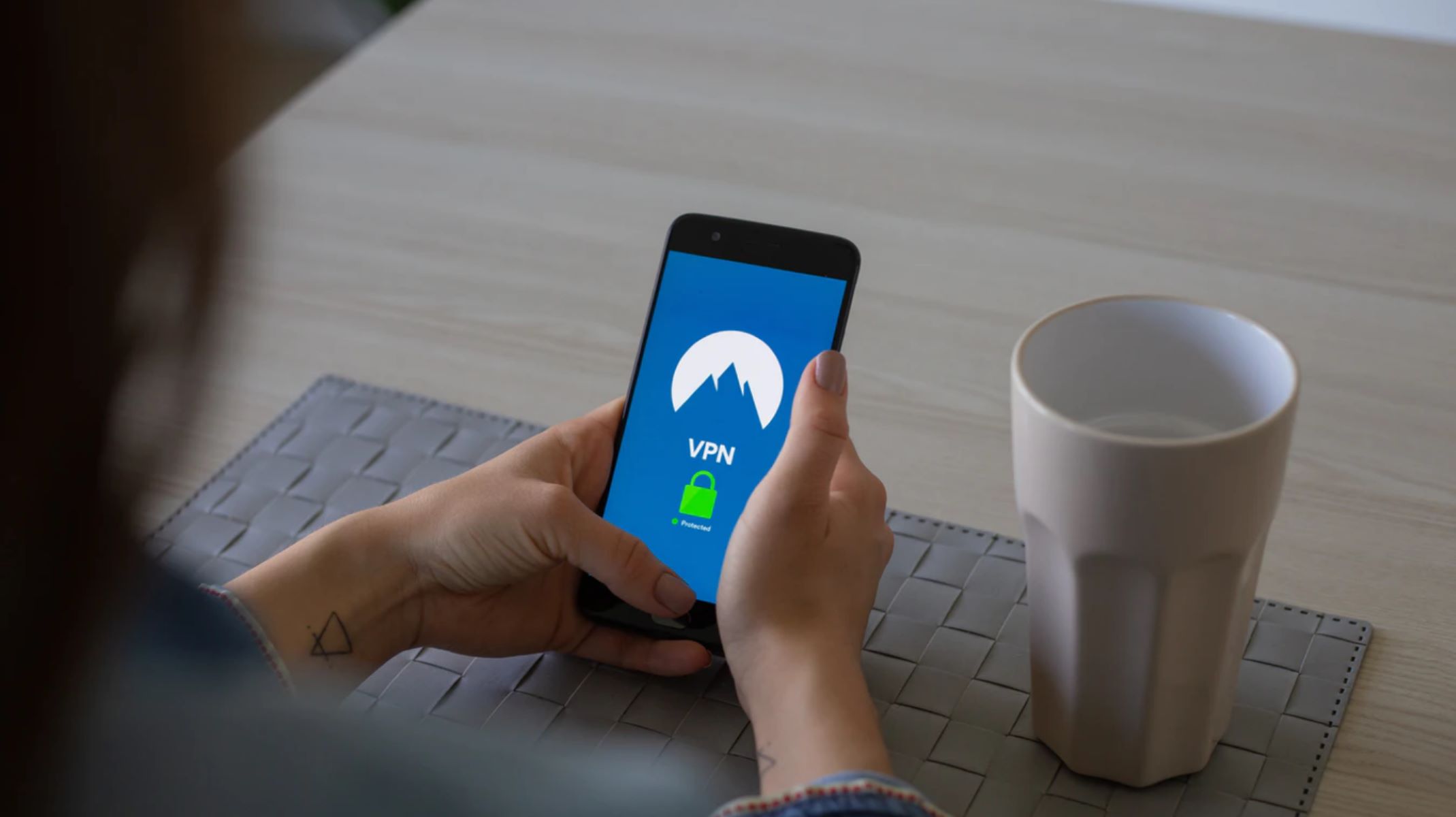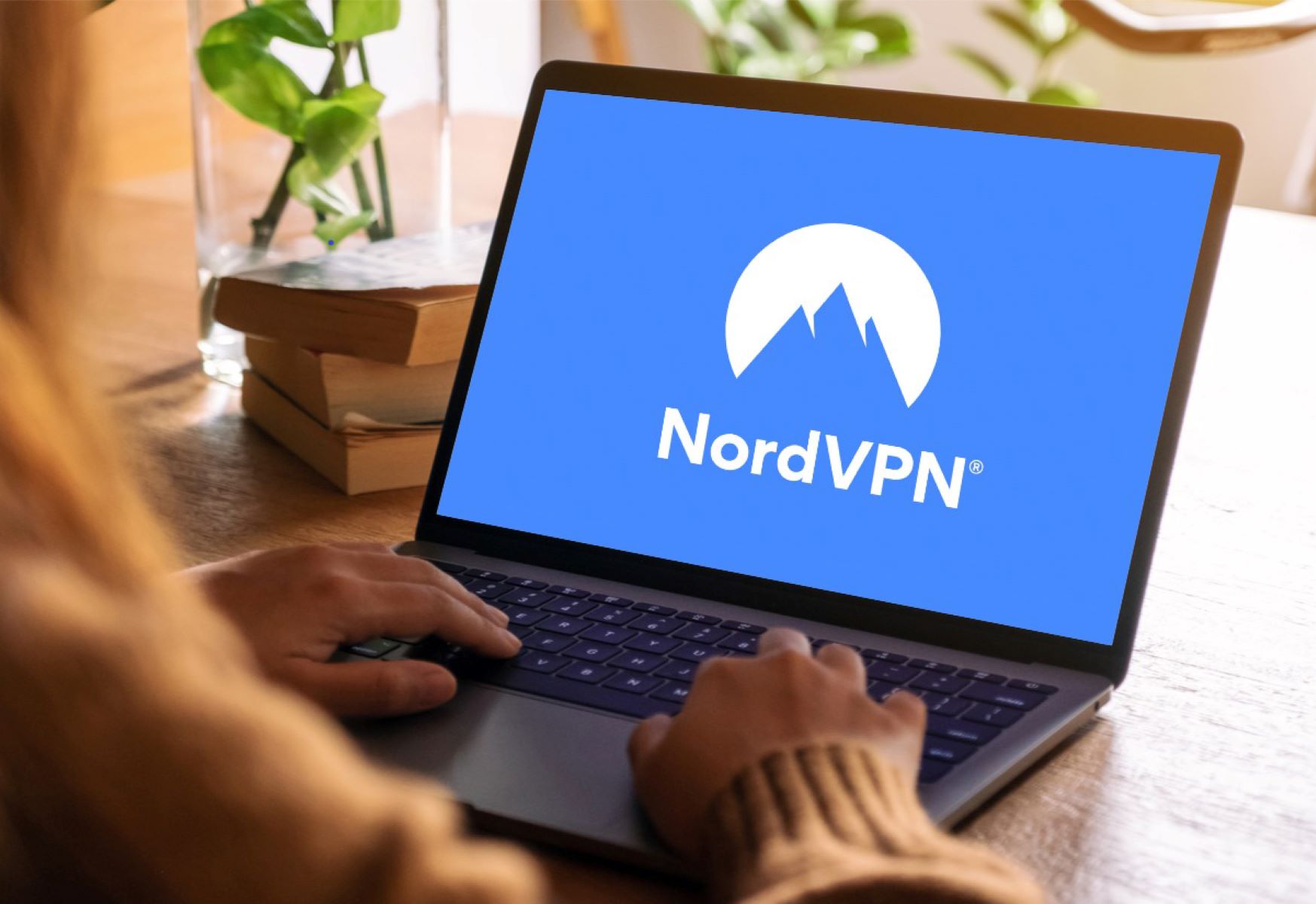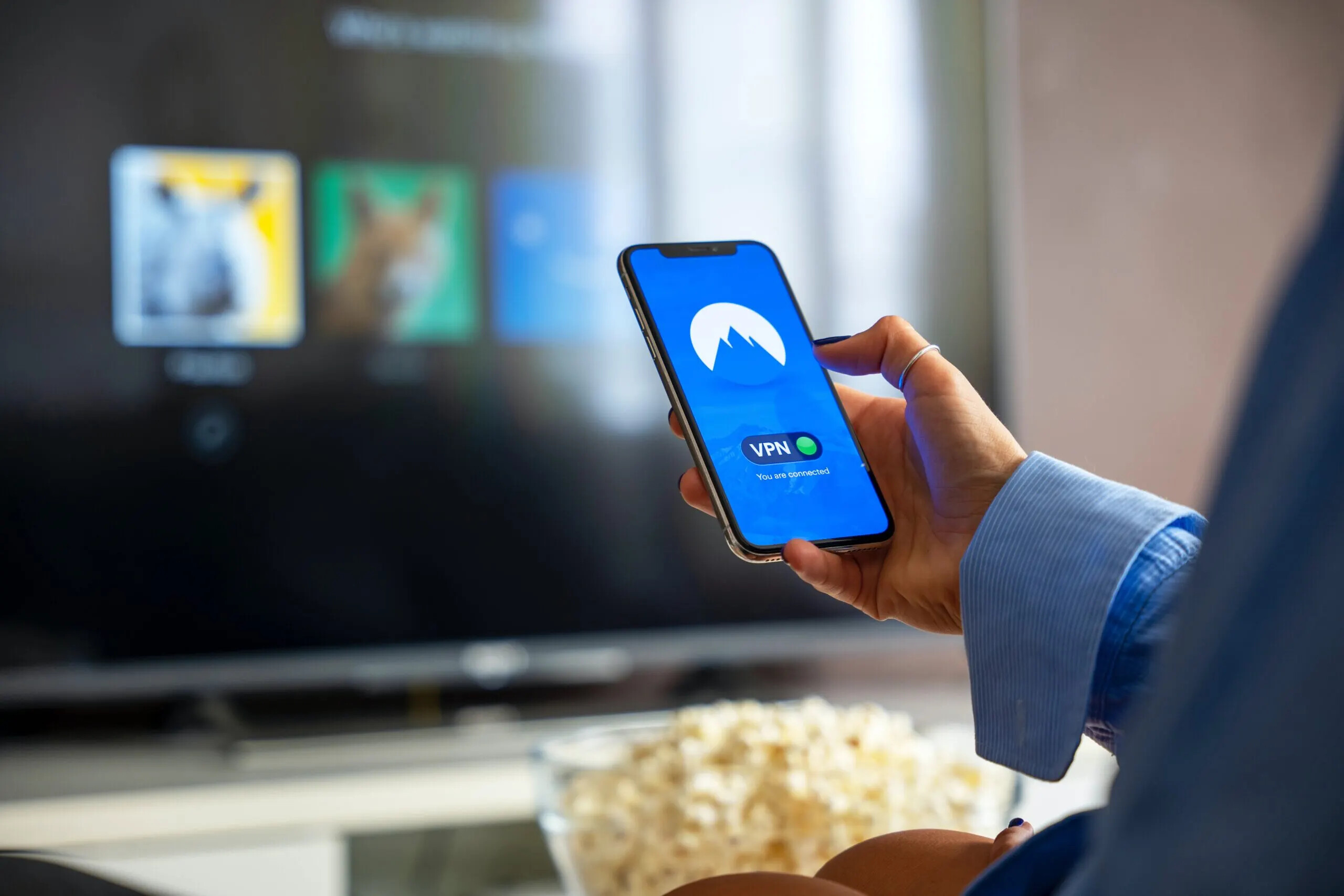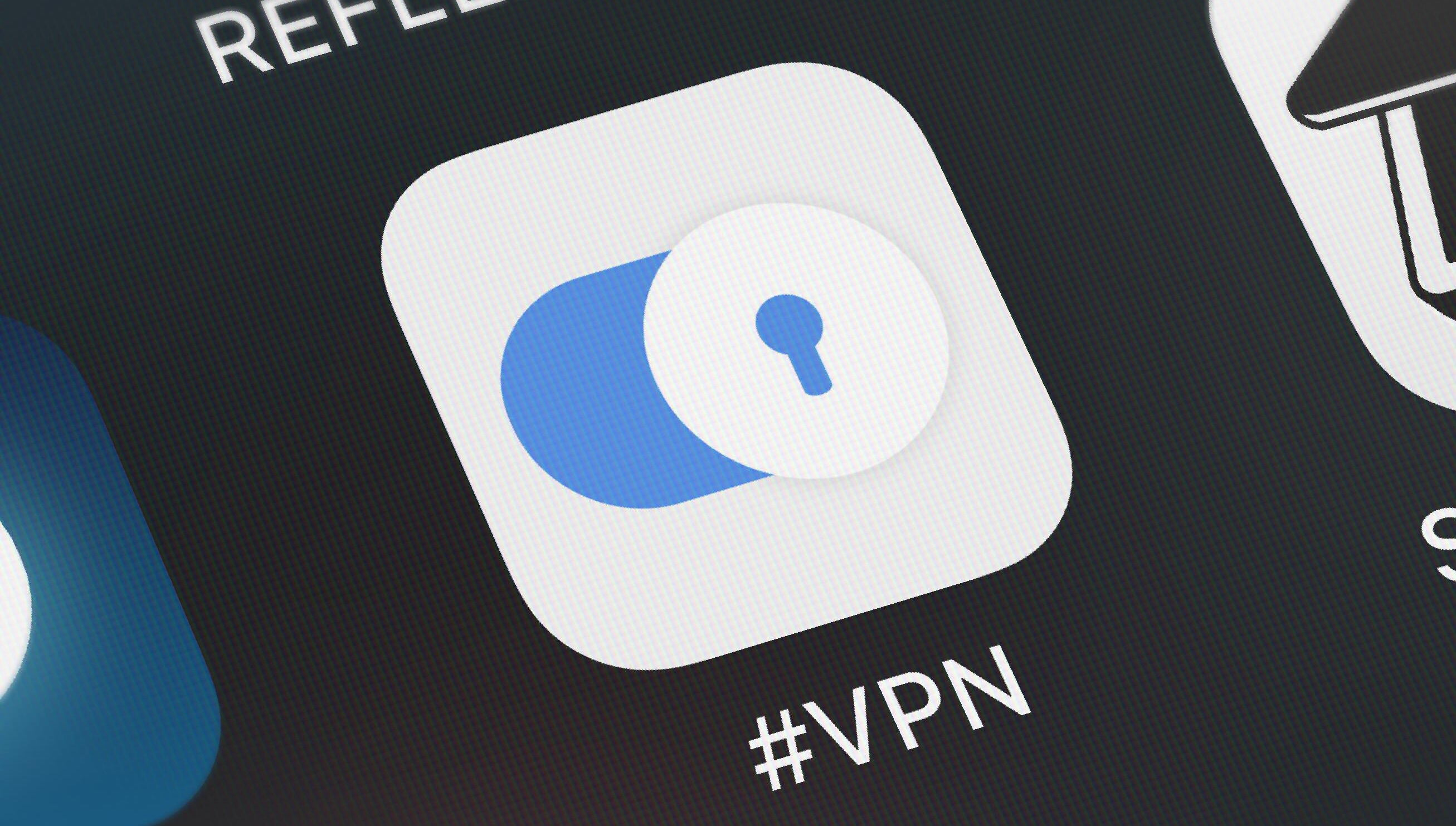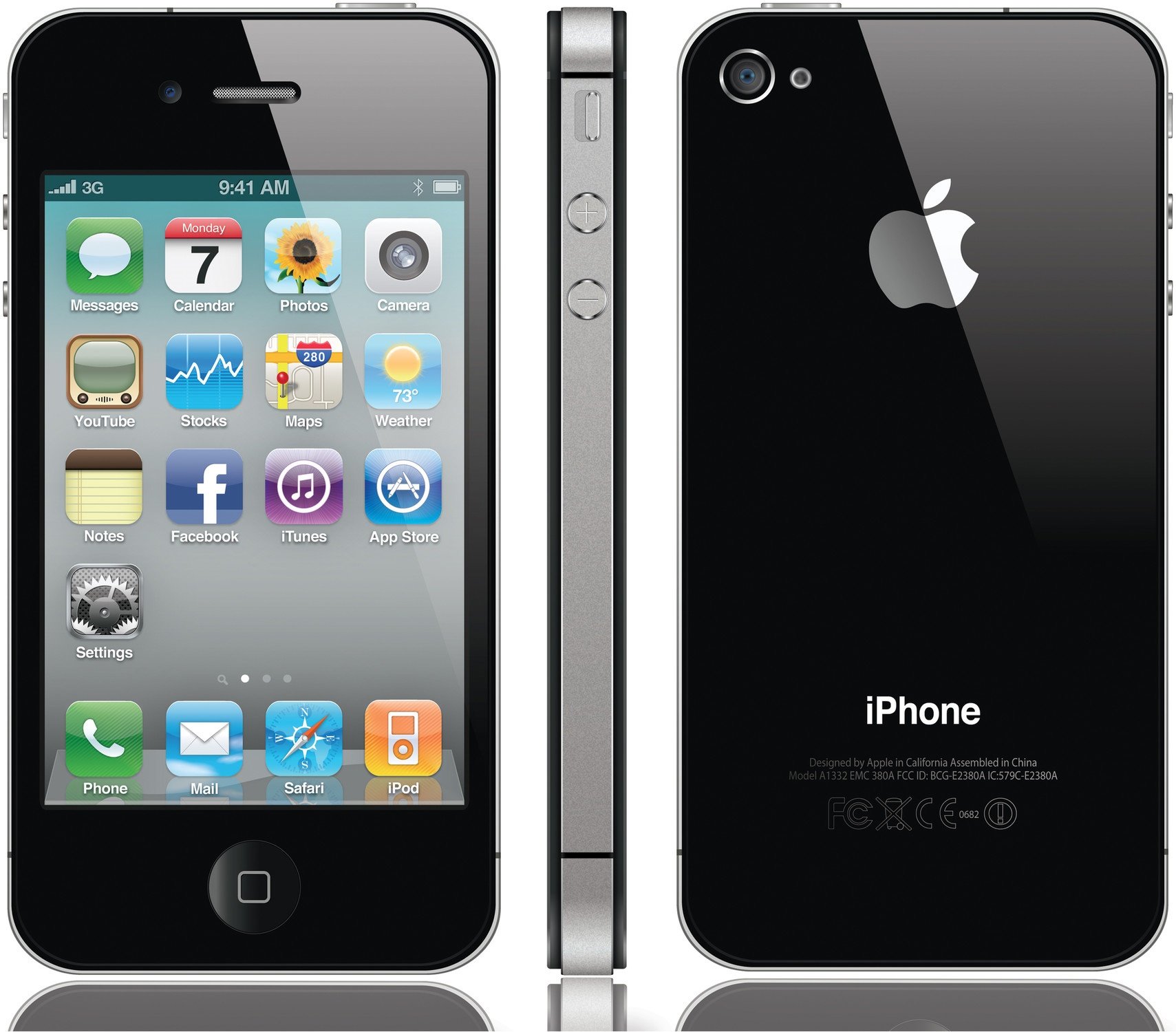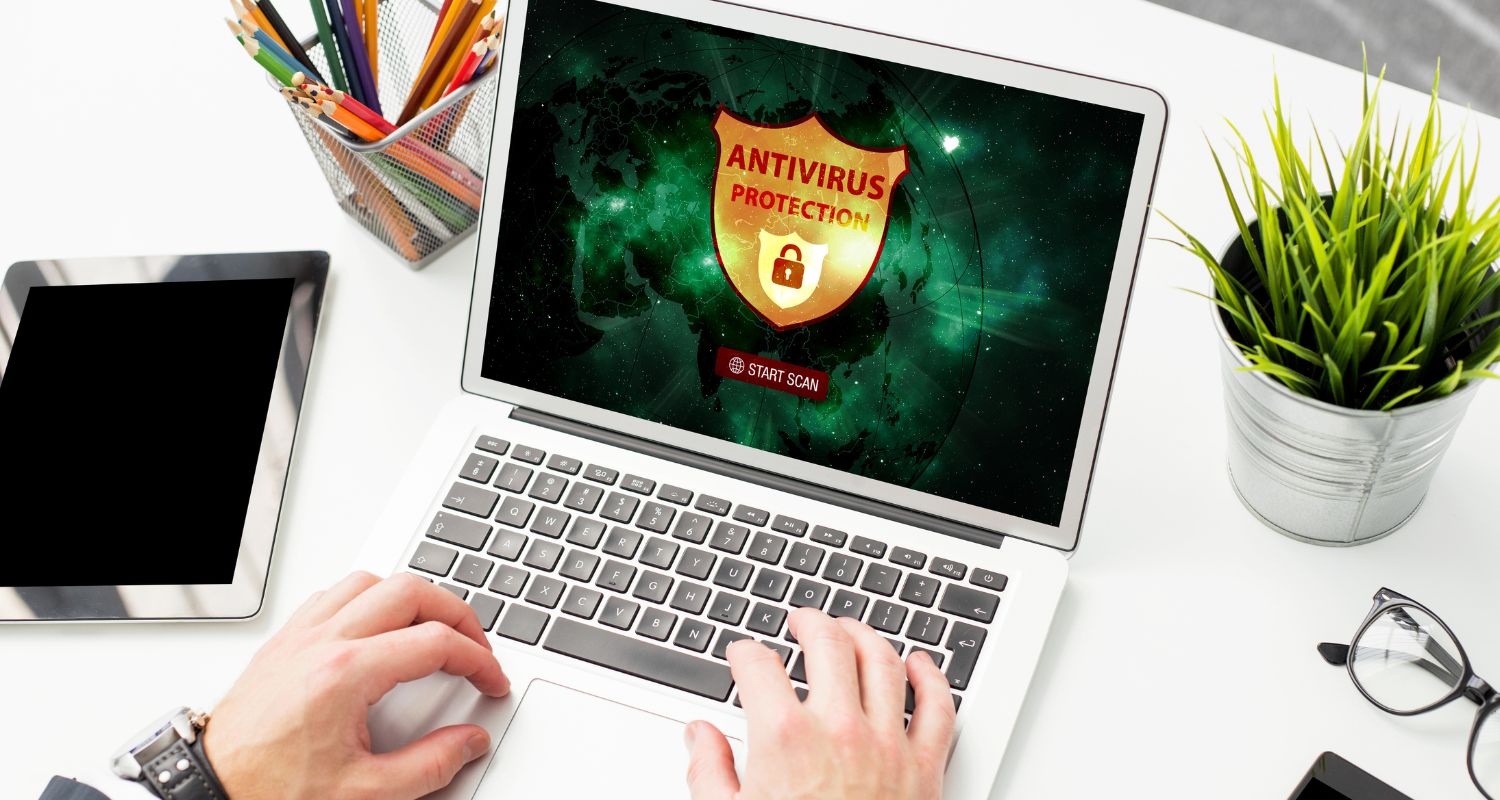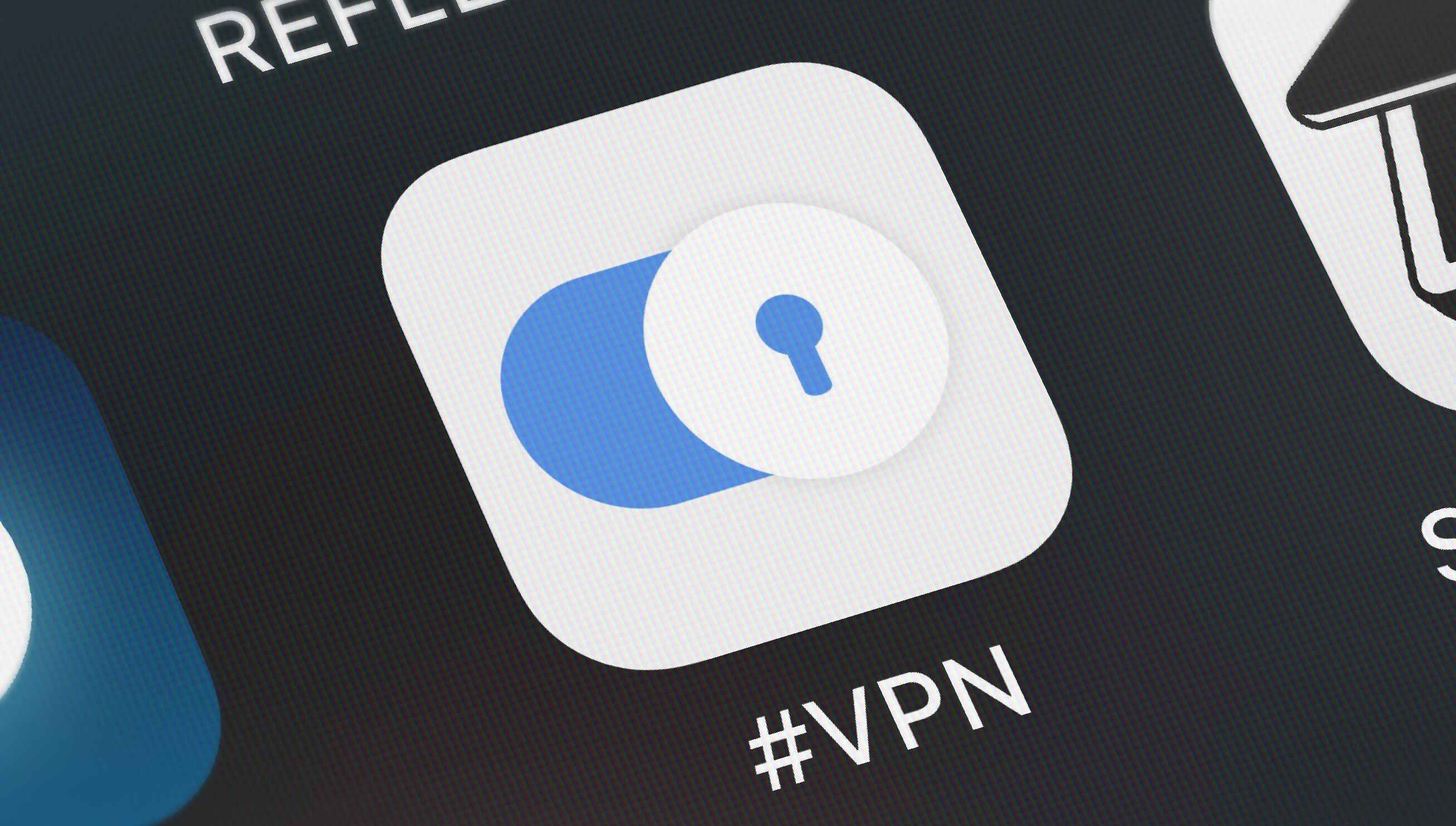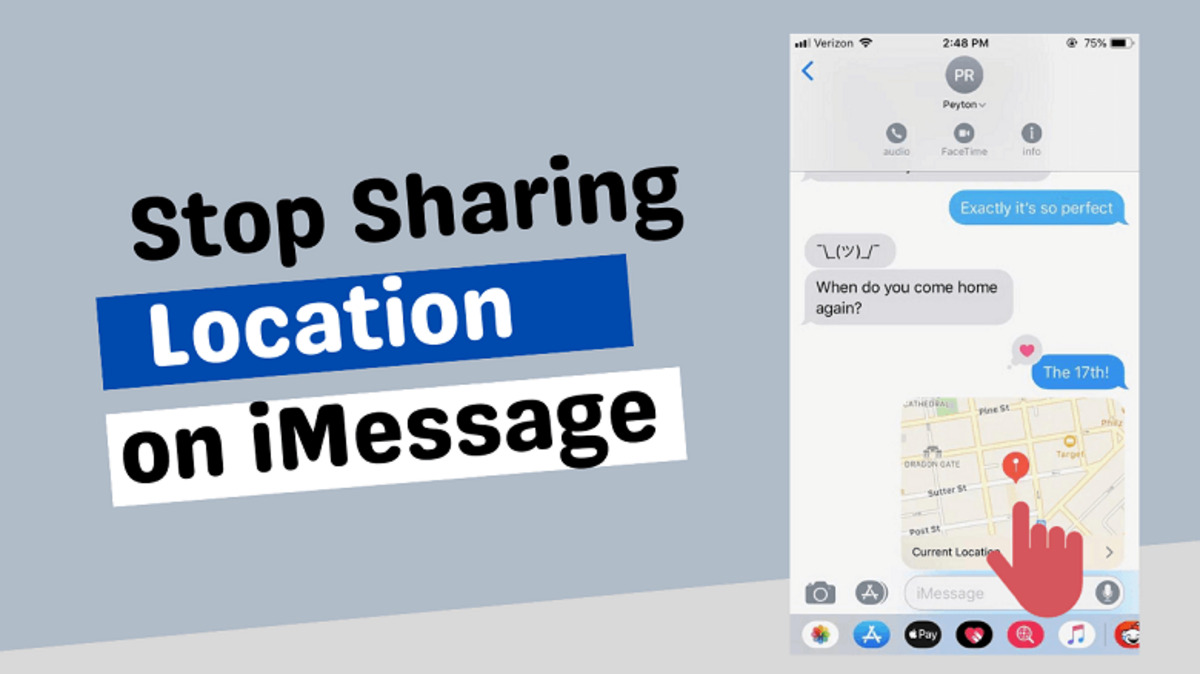What Is VPN On My Phone Mean
A VPN, or Virtual Private Network, on your phone refers to the use of a secure network connection that allows you to browse the internet privately and securely. It creates a tunnel between your device and the server of the VPN provider, encrypting your data and protecting it from prying eyes. This means that your online activities, such as browsing, streaming, or accessing sensitive information, remain anonymous and secure.
When you connect to a VPN on your phone, it masks your IP address and replaces it with one from the VPN server. This makes it appear as if you are accessing the internet from a different location, helping you bypass geographical restrictions and access content that is otherwise unavailable in your country.
With the increasing importance of online privacy, using a VPN on your phone has become crucial. It ensures that your sensitive information, such as passwords, credit card details, and personal data, remains encrypted and hidden from hackers, ISPs, or any other malicious third parties.
Moreover, a VPN on your phone allows you to securely connect to public Wi-Fi networks, such as those in coffee shops, airports, or hotels. These networks are often unsecured, making your data vulnerable to interception. By using a VPN, your data is encrypted and protected, ensuring that no one can intercept your communications or gain unauthorized access to your device.
Overall, having a VPN on your phone provides an added layer of privacy, security, and freedom while using the internet. It enables you to browse the web without the fear of being monitored, bypass internet censorship, and protect your personal information from potential threats.
Next, let’s explore the benefits of using a VPN on your phone in more detail.
Introduction
In this digital age, where smartphones have become an integral part of our lives, ensuring the security and privacy of our online activities is of utmost importance. With the increasing presence of cyber threats and the need to safeguard our personal information, using a VPN on our phones has become a necessity.
A VPN, short for Virtual Private Network, provides a secure and encrypted connection between your device and the internet. It creates a private network that tunnels your internet traffic through a remote server, protecting your data from prying eyes and potential hackers.
Not only does a VPN enhance your online privacy, but it also offers several other advantages. It allows you to bypass restrictions imposed by internet service providers (ISPs) or governments, granting you access to geo-restricted content and websites. If you’ve ever encountered the frustrating message, “This content is not available in your country,” a VPN can help you overcome that barrier.
With a VPN on your phone, you can connect to public Wi-Fi networks with confidence. Public Wi-Fi networks, such as those found in airports, coffee shops, or hotels, are notorious for their lack of security. Hackers often target these networks to intercept users’ sensitive data. However, by using a VPN, your data is encrypted, ensuring that your personal information remains confidential and protected.
Moreover, using a VPN on your phone can be beneficial for remote workers or individuals who frequently travel. It allows them to securely access their corporate networks or sensitive work documents, even when connecting to the internet from unfamiliar or unsecured locations.
Now that we have a basic understanding of what a VPN is and why it is important, let’s delve deeper into the benefits of using a VPN on your phone.
What is a VPN?
A VPN, or Virtual Private Network, is a technology that allows you to establish a secure and private network connection over a public network (such as the internet). It creates a virtual tunnel between your device and a remote server, encrypting your data and routing it through this secure connection.
When you connect to a VPN, your internet traffic is encrypted, meaning that it is scrambled and made unreadable to anyone who may intercept it. This encryption ensures the confidentiality and privacy of your online activities. It also masks your IP address, making it appear as if you are connected to the internet from a different location. This feature helps bypass geographical restrictions and allows you to access content that may be blocked or restricted in your region.
A VPN works by securely routing your internet traffic through one of the VPN provider’s servers located in different parts of the world. Your data passes through this server before reaching its intended destination. This process not only encrypts your data but also protects it from potential threats, such as hackers or eavesdroppers who may be lurking on the public network.
One of the key features of a VPN is anonymity. When you use a VPN, your internet activities are shielded from your internet service provider (ISP) and other third-party entities. This means that your ISP cannot see the websites you visit or track your online behavior. It offers an additional layer of privacy and prevents advertisers or data brokers from collecting your personal information for targeted advertising.
Furthermore, a VPN can help ensure the security of your data when connecting to public Wi-Fi networks. Public Wi-Fi networks, though convenient, are often unsecured and can pose a significant risk to your personal information. By using a VPN, your data is encrypted, making it virtually impossible for anyone on the same network to intercept your communications or gain unauthorized access to your device.
In summary, a VPN is a vital tool that provides privacy, security, and freedom on the internet. It encrypts your data, masks your IP address, and allows you to browse the web anonymously. Whether you want to protect your personal information, access geo-blocked content, or secure your connection on public Wi-Fi, a VPN is an essential tool that offers peace of mind in an increasingly connected world.
Why use a VPN on your phone?
Using a VPN on your phone offers numerous advantages that can greatly enhance your online experience and protect your privacy. Here are some compelling reasons to use a VPN on your phone:
- Enhanced Privacy: When you connect to a VPN on your phone, your internet traffic is encrypted, ensuring that your online activities remain private and secure. It prevents your internet service provider (ISP), advertisers, and other third parties from tracking your browsing habits and collecting your personal data.
- Bypass Geo-restrictions: Many websites and streaming services implement geographic restrictions, making certain content inaccessible in specific regions. By using a VPN, you can connect to a server in a different country and bypass these restrictions, gaining access to geographically restricted content.
- Secure Public Wi-Fi: Public Wi-Fi networks, such as those in coffee shops, airports, and hotels, are notorious for their lack of security. They leave your personal data vulnerable to hackers and other malicious actors. A VPN encrypts your data, protecting it from being intercepted on public Wi-Fi networks and ensuring your sensitive information remains secure.
- Protection from Cyber Threats: Using a VPN on your phone adds an additional layer of protection against cyber threats. It shields your device from potential malware, phishing attacks, and other online threats by encrypting your data and masking your IP address.
- Anonymous Browsing: A VPN allows you to browse the internet anonymously by masking your IP address and replacing it with the IP address of the VPN server. This prevents websites and online services from identifying your real location and tracking your online activities.
- Secure Remote Access: If you frequently work remotely or need to access sensitive information from your phone, using a VPN provides a secure connection to your company’s network or cloud resources. It ensures that your data is transmitted safely and remains protected from unauthorized access.
Whether you want to protect your privacy, access region-locked content, secure your connection on public Wi-Fi, or safeguard your personal information from cyber threats, using a VPN on your phone is a wise choice. It provides an added layer of security and privacy, allowing you to enjoy the internet with peace of mind.
Benefits of using a VPN on your phone
Using a VPN on your phone offers a multitude of benefits that enhance your online experience and protect your privacy. Here are some key advantages of using a VPN on your phone:
- Online Privacy: One of the primary benefits of using a VPN is the enhanced privacy it provides. By encrypting your internet traffic and masking your IP address, a VPN ensures that your online activities remain private and protected from prying eyes.
- Secure Data Transmission: When you connect to a VPN on your phone, your data is encrypted and transmitted through a secure tunnel. This protects your personal information, such as passwords, credit card details, and any other sensitive data, from being intercepted by hackers or other malicious actors.
- Access to Geo-restricted Content: Many streaming services, websites, and online platforms impose geographical restrictions on their content. By using a VPN, you can bypass these restrictions and gain access to geographically restricted content, allowing you to enjoy a broader range of entertainment options.
- Protection on Public Wi-Fi: Public Wi-Fi networks are notorious for their lack of security, making your data vulnerable to interception by hackers. With a VPN on your phone, your data is encrypted, ensuring that your online activities and personal information remain secure even when connected to unsecured public Wi-Fi networks.
- Anonymous Browsing: A VPN masks your IP address and replaces it with the IP address of the VPN server, making it difficult for websites and online services to track your online activities. This allows you to browse the internet anonymously, preserving your privacy and preventing targeted advertising.
- Bypass Internet Censorship: In countries where internet censorship is prevalent, a VPN can help bypass these restrictions. By connecting to a VPN server in a different location, you can access blocked websites and online services, allowing you to freely browse the internet without limitations.
- Safely Use Public Wi-Fi: As mentioned earlier, a VPN encrypts your data when connected to public Wi-Fi networks. This protects your login credentials, personal information, and sensitive data from being intercepted by cybercriminals or malicious users who may be connected to the same network.
- Secure Remote Working: If you work remotely or need to access sensitive work-related resources on your phone, a VPN provides a secure connection to your company’s network. This ensures that your data is transmitted safely and remains confidential, protecting your valuable business information.
By using a VPN on your phone, you can enjoy a higher level of privacy, security, and freedom while browsing the internet. Whether you want to protect your personal information, access restricted content, or safeguard your data on public Wi-Fi networks, a VPN is a valuable tool that enhances your online experience and ensures your digital well-being.
Types of VPN protocols for mobile devices
When it comes to choosing a VPN for your mobile device, it’s important to be aware of the different VPN protocols available. Each protocol has its own strengths and weaknesses in terms of security, speed, and compatibility. Here are some of the most commonly used VPN protocols for mobile devices:
- OpenVPN: OpenVPN is widely regarded as one of the most secure and versatile VPN protocols. It offers high-level encryption, making it difficult for anyone to intercept or decrypt your data. OpenVPN is compatible with most mobile operating systems and provides excellent performance across different network types.
- IPSec: Internet Protocol Security (IPSec) is another commonly used VPN protocol. It provides strong security by encrypting your data at the IP level. IPSec is often used in combination with other protocols, such as L2TP or IKEv2, to provide a secure and reliable VPN connection.
- L2TP/IPSec: Layer 2 Tunneling Protocol (L2TP) combined with IPSec is a widely supported protocol for mobile devices. It offers good security and is compatible with most mobile platforms. L2TP/IPSec is relatively easy to set up but may not be as fast as some other protocols.
- IKEv2: Internet Key Exchange version 2 (IKEv2) is a secure and efficient VPN protocol that is often used in combination with IPSec. It provides fast connection speeds and is known for its ability to handle network changes smoothly, making it particularly suitable for mobile devices that frequently switch between Wi-Fi and cellular networks.
- WireGuard: WireGuard is a relatively new VPN protocol that aims to provide high-speed performance and strong security. It uses modern cryptography techniques and is designed to be lightweight and efficient. However, WireGuard may not be as widely supported as other protocols at this time.
It’s important to note that the availability of VPN protocols may vary depending on the VPN service provider and the mobile operating system you are using. Consider factors such as security, speed, and compatibility when choosing the VPN protocol for your mobile device.
Now that we understand the various VPN protocols available, let’s explore how to set up a VPN on your phone in the next section.
How to set up a VPN on your phone
Setting up a VPN on your phone is a straightforward process that can be done in a few simple steps. Here’s a general guide on how to set up a VPN on your phone:
- Choose a VPN Provider: Start by selecting a reputable VPN provider that offers a mobile app. Look for providers that have good reviews, strong security protocols, and a wide selection of server locations.
- Download and Install the VPN App: Visit the app store on your phone (such as the Google Play Store for Android or the App Store for iOS) and search for the VPN app. Download and install the app onto your device.
- Sign Up and Subscribe: Open the VPN app and sign up for an account. Some providers offer a free trial or a limited free version, while others require a subscription. Choose the option that best suits your needs and budget.
- Launch the App and Connect: Open the VPN app and log in with your credentials. Follow the on-screen instructions to connect to a VPN server. You can usually choose a server location or allow the app to connect to the best server automatically.
- Customize VPN Settings (Optional): Most VPN apps offer additional settings that you can customize according to your preferences. This may include options for protocol selection, auto-connect on Wi-Fi, or split tunneling. Explore the settings and adjust them if necessary.
- Test the VPN Connection: Once connected, test your VPN connection by visiting a website or using an online tool to verify your IP address. Your IP address should now reflect the location of the VPN server you are connected to, indicating that the VPN is working correctly.
- Disconnect or Reconnect as Needed: When you no longer need to use the VPN, simply disconnect from the VPN server within the app. You can reconnect to the VPN whenever you want to ensure your online activities remain encrypted and private.
It’s worth noting that specific steps may vary depending on the VPN provider and the mobile operating system you are using. Some VPN apps may offer additional features or customization options that are exclusive to their platform.
Overall, the process of setting up a VPN on your phone is user-friendly, and most VPN providers offer intuitive apps that make the setup process seamless. Take a few minutes to configure a VPN on your phone, and enjoy the added security and privacy it provides while browsing the internet.
Popular VPN apps for mobile devices
There are numerous VPN apps available for mobile devices, each offering its own features and benefits. Here are some popular VPN apps that are widely used and highly recommended:
- ExpressVPN: ExpressVPN is consistently rated as one of the best VPN providers across multiple platforms. It offers a user-friendly mobile app with a wide selection of server locations, fast connection speeds, and strong security features.
- NordVPN: NordVPN is known for its extensive network of servers worldwide, making it an excellent choice for those seeking a wide range of server locations. It provides a mobile app that is easy to use and offers advanced security features, including double encryption and ad-blocking.
- Surfshark: Surfshark is a budget-friendly VPN app that offers unlimited simultaneous connections, making it an ideal choice for users with multiple mobile devices. It provides strong security measures, including encryption and a built-in ad-blocker.
- CyberGhost: CyberGhost is a user-friendly VPN app known for its simplicity and ease of use. It offers a large network of servers, optimized for streaming and torrenting, and provides strong privacy features to keep your data secure.
- Hotspot Shield: Hotspot Shield is a popular VPN app that offers a free version, making it accessible to users who are looking for basic VPN functionalities at no cost. It provides fast connection speeds and has a user-friendly interface.
- ProtonVPN: ProtonVPN is a highly secure VPN app that prioritizes user privacy. It is developed by the team behind ProtonMail, renowned for its commitment to privacy and security. ProtonVPN offers a free version and a premium version with advanced features and unlimited data.
Choosing the right VPN app for your mobile device depends on your specific needs and preferences. Consider factors such as server locations, connection speeds, security features, and pricing when selecting a VPN app that suits your requirements.
It’s important to note that while these VPN apps are popular and reliable, there are many other VPN providers available in the market. It’s recommended to research and read reviews to make an informed decision based on your individual needs.
Now that you’re aware of some popular VPN apps for mobile devices, you can explore their features and choose the one that best aligns with your privacy and security requirements.
Tips for using a VPN on your phone
Using a VPN on your phone can greatly enhance your privacy and security while browsing the internet. Here are some useful tips to help you make the most out of your VPN experience on your mobile device:
- Choose a Reliable VPN Provider: Select a trusted and reputable VPN provider that has a strong track record for privacy and security. Read reviews and research the provider’s reputation before making a decision.
- Use Strong Authentication: Enable multi-factor authentication (MFA) or two-factor authentication (2FA) for your VPN account. This adds an extra layer of security by requiring an additional verification step when logging in.
- Select the Right Server: Choose a VPN server location that best suits your needs. If you want to access region-locked content, select a server in the desired location. If your priority is privacy, choose a server in a country with strong data protection laws.
- Enable Auto-Connect: Most VPN apps allow you to enable auto-connect on trusted networks, such as your home or work Wi-Fi. This ensures that your VPN automatically connects when you are on an untrusted network, providing continuous protection.
- Test Your VPN Connection: Periodically test your VPN connection to ensure it is working properly. Use online tools to check your IP address and confirm that it reflects the location of the VPN server you are connected to.
- Verify VPN App Permissions: Review the permissions requested by the VPN app before installing it. Be cautious if an app requests unnecessary permissions unrelated to its functionality.
- Update Your VPN App: Keep your VPN app up to date to ensure you have the latest security patches and bug fixes. Enable automatic updates or regularly check for updates manually.
- Be Mindful of VPN Speeds: While VPNs provide encryption and security, they can occasionally impact internet speeds. If you experience slow speeds, try connecting to a different server or switch to a VPN protocol that offers better performance.
- Consider Split Tunneling: Some VPN apps offer a split tunneling feature that allows you to choose which apps or services use the VPN connection and which ones don’t. This can be useful if you only want to route specific traffic through the VPN.
- Disconnect When Not in Use: When you’re not actively using the internet or don’t require the protection of a VPN, disconnect from the VPN to conserve battery life and optimize performance.
By following these tips, you can maximize the benefits of using a VPN on your phone. Remember to prioritize the security and privacy of your online activities, and choose the settings and configurations that best align with your needs and preferences.
Conclusion
Using a VPN on your phone is a crucial step towards enhancing your privacy, security, and online freedom. Whether you’re concerned about protecting your personal information from hackers, accessing geo-restricted content, or securing your connection on public Wi-Fi networks, a VPN offers an effective solution.
Throughout this article, we have explored what a VPN on your phone means and why it is significant. We’ve discussed the benefits of using a VPN, including enhanced privacy, bypassing geo-restrictions, and protecting your data on public Wi-Fi. Additionally, we’ve looked at the different types of VPN protocols available for mobile devices and provided tips on how to set up and make the most out of a VPN on your phone.
When setting up and using a VPN on your phone, it’s essential to choose a reliable VPN provider, select the appropriate server location, and enable strong authentication methods. Regularly test your VPN connection, keep your app updated, and use split tunneling if available. By following these recommendations, you can optimize your VPN experience and enjoy the full benefits of a secure and private internet connection on your phone.
Remember, technology continues to evolve, and threats to your online privacy and security persist. Stay informed about the latest developments in VPN technology and best practices to keep your mobile devices protected. With a VPN on your phone, you can browse the internet with peace of mind, knowing that your data is encrypted and your privacy is safeguarded.









